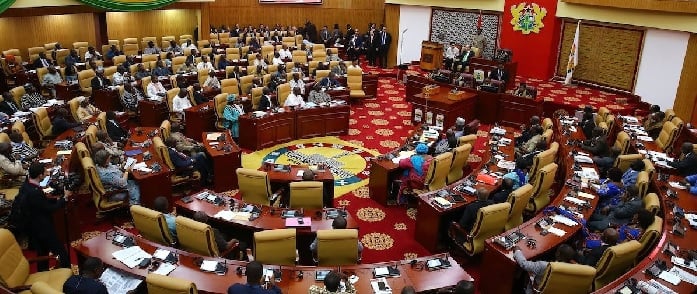Parliament has taken a major step towards restructuring Ghana’s gold sector with the first reading of the Ghana Gold Board Bill.
The proposed legislation aims to establish the Ghana Gold Board, a regulatory body designed to oversee, streamline, and optimize gold trade in the country.
Ghana, Africa’s top gold exporter, generated approximately $11.5 billion from gold exports in 2024. Of this, small-scale mining contributed $4.6 billion (40%), while large-scale operations accounted for $6.9 billion (60%). However, Finance Minister Dr. Cassiel Ato Forson, in a bill presented on his behalf by Deputy Minister Thomas Nyarko Ampem, noted that despite these earnings, the country’s gold revenue has been largely limited to royalties and taxes, with little direct profit from gold trade.
He highlighted inefficiencies in the current system, where multiple entities—including the Bank of Ghana, the Minerals Income Investment Fund, and the Precious Minerals Marketing Company—operate under separate regulations. This fragmentation has contributed to revenue losses, gold smuggling, and weak enforcement of export controls.
To address these challenges, the Bill proposes the creation of the Ghana Gold Board, which will act as the central authority for buying, selling, refining, and exporting gold. The Board will ensure quality control, promote local value addition in gold processing, and enhance transparency in foreign exchange repatriation.
Key provisions of the Bill include:
Exclusive authority for the Ghana Gold Board to purchase gold from small-scale miners and regulate exports.
The absorption of the Precious Minerals Marketing Company’s functions, consolidating gold trade under one entity.
Measures to curb gold smuggling and enforce responsible mining practices.
Amendments to the Minerals and Mining Act, 2006 (Act 703) to align with the new regulatory framework.
The Ghana Gold Board will be governed by a thirteen-member Board of Directors, comprising representatives from the Ministries of Mines and Finance, the Bank of Ghana, the Minerals Commission, and the mining industry. A Chief Executive Officer will be appointed to oversee daily operations.
Financially, the Board will generate revenue through service fees, penalties, and investments, with the authority to secure loans and funding for its operations. Once fully operational, it will ensure that all gold produced in Ghana is properly accounted for, significantly reducing illicit gold trade and improving access to international bullion markets.
With the introduction of this Bill, Ghana moves towards a more structured and economically beneficial gold trade system, aimed at boosting long-term growth and sustainability in the sector. The Bill will now undergo further parliamentary deliberation before a final decision is made on its enactment.


